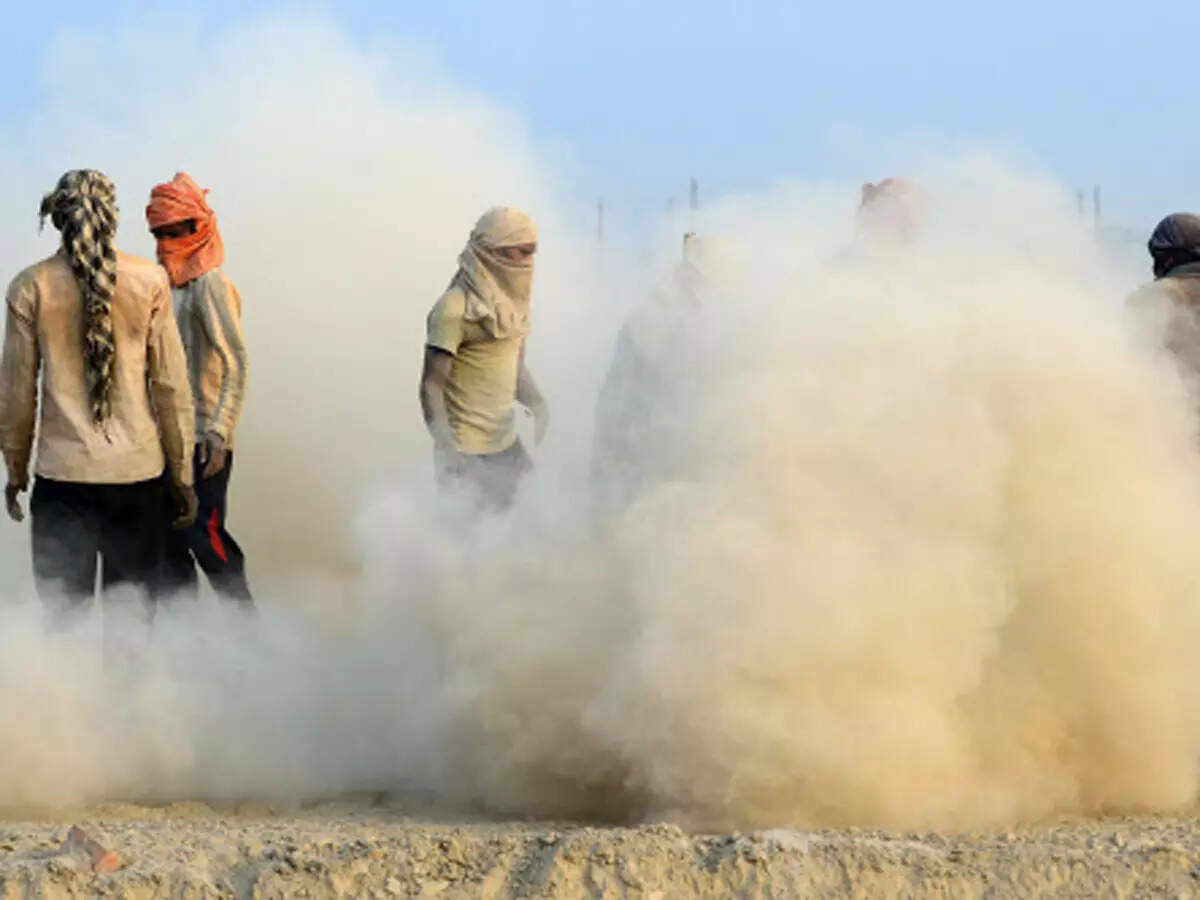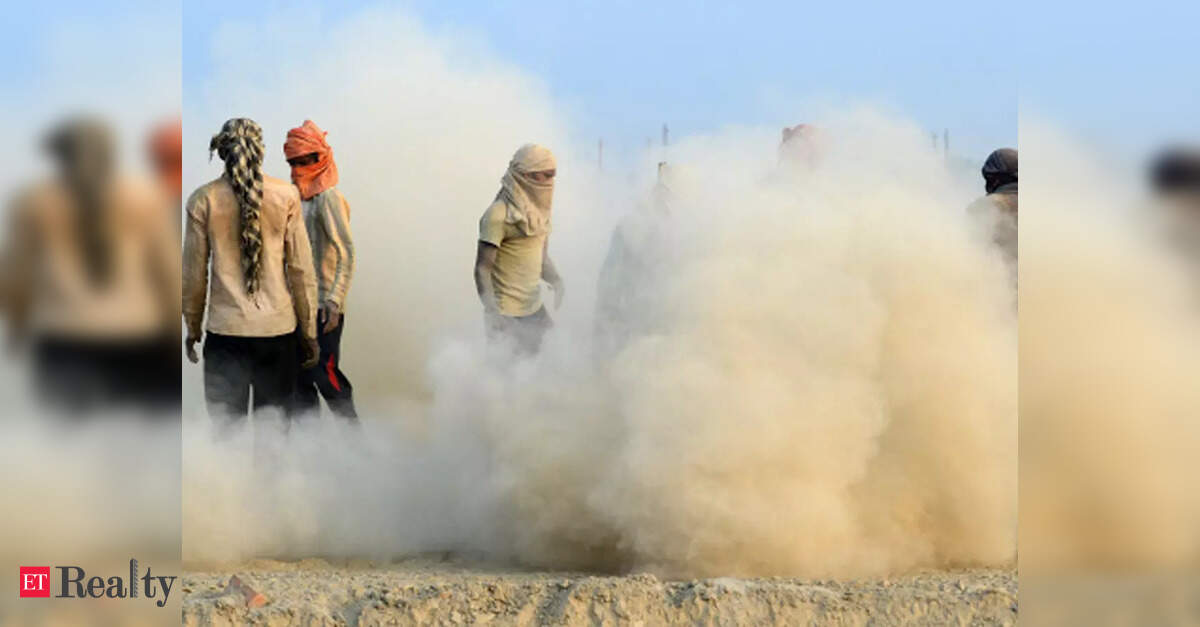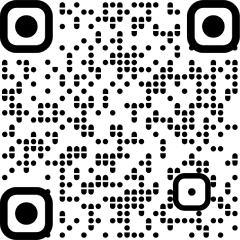
AHMEDABAD: The city’s civic body is intensifying efforts to enhance complaint resolution while enforcing anti-pollution measures at construction sites, which continue to contribute to air quality issues. Advances in monitoring technologies have not fully mitigated these violations.
As of 2023, the Ahmedabad Municipal Corporation (AMC) has required construction sites larger than 10,000 square meters to install air quality sensors. Currently, 100 sites are equipped with online monitoring systems that issue warnings when pollution levels exceed acceptable thresholds. Yet, no developer has faced fines based on sensor readings in the past year, indicating ongoing challenges in enforcement despite advanced technology.
A 2021-22 AMC study of 452 construction sites identified violations across various real estate projects. “The new regulations include mandatory barricades, dust suppression measures, proper road paving, and wheel cleaning systems for construction vehicles,” stated a senior AMC official. “Although these rules are in place, effective enforcement is still a challenge.”
In May, the AMC’s standing committee addressed the issue of Ready Mix Concrete plants in residential areas, a major source of pollution. “The new standard operating procedures require the relocation of existing RMC plants from residential zones by July 2025 and prohibit any new installations starting in August,” noted the official.
Some citizen-focused initiatives have achieved a 40% reduction in air pollution, according to a survey by the Gujarat Environmental Management Institute (GEMI). “This success led to a significant incentive grant of ₹120.04 crore from the central government for 2022-23, allowing for the consultant agency’s contract extension until April 2026,” the AMC official added.
The AMC’s Air Quality Management Cell has implemented several initiatives, including maintaining CNG-powered crematorium furnaces, installing mechanical smart parking systems, creating urban forests, and establishing electric vehicle charging stations powered by solar energy. The cell regularly uploads data to the central government’s Portal for Regulation of Air Pollution in Non-Attainment (PRANA) cities.




